States Ambassador Panabokke of Sri Lanka in Seoul
By Publisher-Chairman Lee Kyung-sik, VCs Choe Nam-suk and Joy Cho, Reporter Kim Su-bin
Ambassador Savitri Indrachapa Panabokke of the Socialist Republic of Sri Lanka said, “The strategic location of Sri Lanka at the crossroads of major shipping routes to South Asia, the Far East, and the continents of Europe and America, proximity to the Indian sub-continent positions the country as a gateway to a market of 1.9 billion people in South Asia alone.”
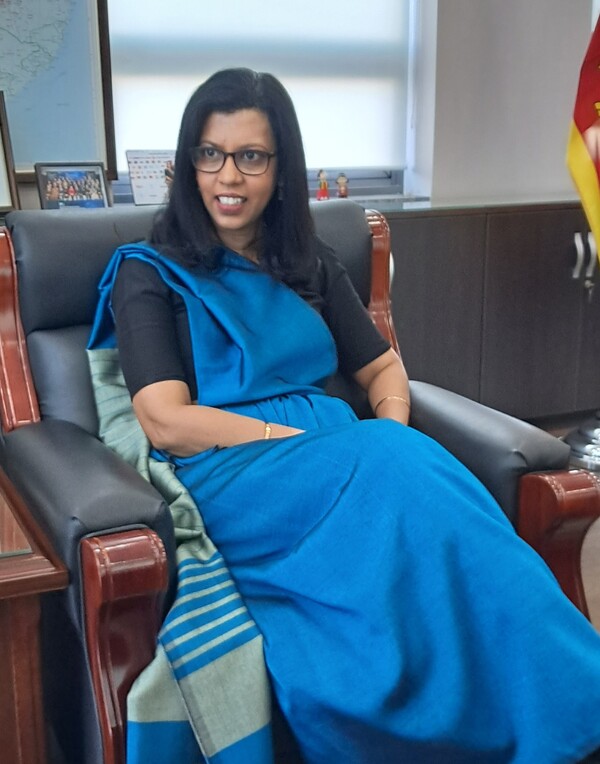
Speaking at an interview with The Korea Post media, publisher of 3 English and 2 Korean news publications since 1985, the lady ambassador noted that Sri Lanka is committed to open trade, prioritizing market access with key trading partners worldwide. Details of the interview follow:
Question: How is the investment environment in Sri Lanka? Are there any special favors given to foreign investors?
A: Sri Lanka’s strategically location at the crossroads of major shipping routes to South Asia, the Far East, and the continents of Europe and America, proximity to the Indian sub-continent positions the country as a gateway to a market of 1.9 billion people in South Asia alone.
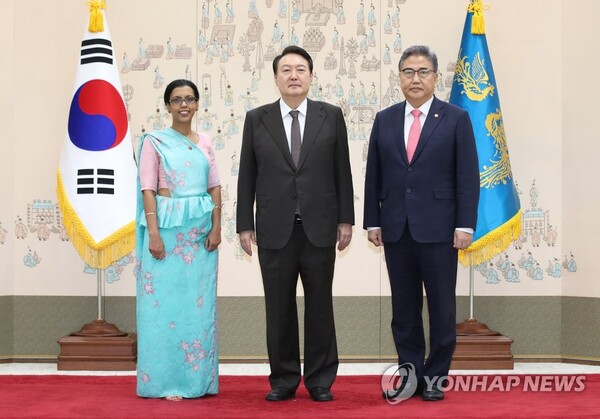
Sri Lanka is committed to open trade, prioritizing market access with key trading partners worldwide. There has been significant momentum on this front, with the FTA with Singapore in 2018 opening up the broader ASEAN market of 650mn, while a lucrative FTA with Thailand is in advanced stages of finalization and renewed interest in completing the Sri Lanka-China FTA. Sri Lanka also enjoys the EU GSP (450mn market) and notably is the only country to have FTAs with both India and Pakistan (duty-free access to a combined market of 1.6 bn consumers). This unique position in terms of proximity and market access remain unmatched in South Asia.
Port City Colombo, a services-oriented special economic zone based on reclaimed land which is an extension of the country's Central Business District, symbolizes Sri Lanka's future orientation against a backdrop of industrial excellence fostered by the Board of Investment over the last four decades. Sri Lankan manufacturers are vital stakeholders in global supply chains ranging from aerospace to apparel, and provide the systems engineering for key e-commerce and commercial trading platforms. This is a country that is rich in talent and opportunity.
Sri Lanka continues to develop FTAs with key global powerhouses, providing investors with critical access to significant markets. These factors combined, generate keen interest in Sri Lanka as a preferred investment destination in the region.
priority FDI sectors:
Manufacturing: Pharmaceuticals, Apparel, Textiles & Accessories, Electrical & Electronics, Rubber, Auto Components, Medical Devices, Value-added Minerals
Services: Information Technology, Hospitality & Tourism, Logistics Services
Agriculture: Processed Food, Fisheries, Aquaculture
Infrastructure: Logistics, Utilities, Transport, Infrastructure
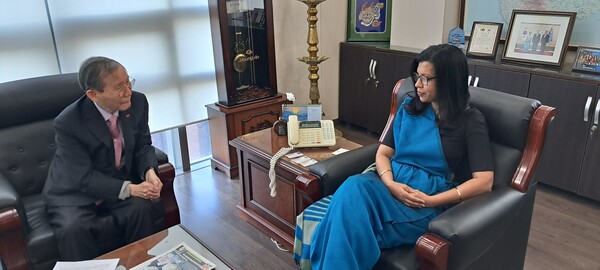
Q: Please introduce outstanding Korean companies in Sri Lanka.
A: Currently, there are nearly 50 projects with Korean collaboration, operating under the purview of the Board of Investment of Sri Lanka.
The highest amount of Korean FDI has been received for the Rubber related manufacturing sector followed by property development, apparel and garment accessories manufacturing and construction.
These enterprises have generated thousands of job opportunities to Sri Lankans. Number of reputed Korean companies such as Kolon Global, Keangnam and Hyosung are curently presence in Sri Lanka.
Q: What is your view of ways as to how to further strengthen the economic and cultural ties between Korea and Sri Lanka in the future?
A: Since the establishment of diplomatic relations on November 14, 1977, Sri Lanka and the Republic of Korea have maintained close ties in various fields such as political, economic, development cooperation, cultural and people-to-people exchanges .
Sri Lanka ‘s strategic location at the crossroads of major shipping routes to South Asia, the Far East, and the continents of Europe and proximity to the Indian sub-continent positions the country as a gateway to a market of 1.9 billion people in South Asia alone provides great potential for cooperation with the Republic of Korea.
In this regard, both Sri Lanka and the ROK need to work together to identify various ways and means to further strengthen and elevate the trade, tourism, cultural and investment cooperation between the two countries. It is pertinent to explore the avenues to address the tariff and non-tariff barriers that may exist in order to increase the trade volumes between the two countries. The Korean companies can utilize Sri Lanka’s strategic location to gain access to the most-populated South Asian market, emerging African markets as well as European Union market thorough the GSP Plus scheme. There is a vast potential to increase travel and tourism industry between the two countries considering the regular air connectivity and diverse travel experiences offered by both countries. Cultural ties between the two nations can be strengthened through Buddhist tourism programmes and various cultural exchange programmes.
Overseas Development Assistance to Sri Lanka comprises a very important aspect of the bilateral relationship between the two countries and has contributed towards Sri Lanka’s development process through loan assistance under the Economic Development Co-operation Fund (EDCF) and grant assistance via the Korea International Cooperation Agency (KOICA).
Q: What is the significance of the Independence Day of Sri Lanka on February 4?
A: On February 4, 2024, the Democratic Socialist Republic of Sri Lanka celebrates the 76th years of gaining independence from the British colonial rule.
Sri Lanka, an island in the Indian Ocean, historically known as Ceylon, Taprobane and Serendib played an important role as a trade and commercial hub of the ancient silk road. The geo-strategic location of Sri Lanka in the center of the East West maritime route and the geo-political significance of the island nation given the close proximity to the Indian sub-continent resulted the island being colonized by western nations since 1505, when the Portuguese took control of the coastal areas. In 1640, the Dutch took over most of the country except for the Kingdom of Kandy. In 1976, the Dutch surrendered the island to the British East India company and in 1815, the entire island officially came under the rule of the British Empire.
After four hundred- and fifty-years of western colonialism, on 04th February 1948, Sri Lanka gained the internal political independence while remaining in the domain of the Commonwealth of Nations with Queen Elizabeth II as the Head of the State. In 1972, the island nation gained full political independence and became a Republic. Since then, the country has been officially known as the Democratic Socialist Republic of Sri Lanka.
Sri Lanka, as one of the oldest democracies in Asia and has protected its political and economic system based on universal suffrage in line with the values and norms of liberal democracy, good governance and human rights. Sri Lanka is a multi-ethnic, multi-religious and multi-cultural country with rich, cosmopolitan values where a number of different communities have co-existed over centuries, with all political, economic and socio-cultural rights.
Q: We understand that President Yoon Suk-yeol of Korea and President Ranil Wickremesinghe of Sri Lanka had a summit meeting at the United Nations Assembly on Sept. 18, 2023. What were the major discussions between them?
A: A fruitful discussion between the Sri Lanks President Ranil Wickramasinghe and the President of the Rok, Yoon Suk Yeol was on September 18th in 2023 in conjunction with the High-level Meetings of the 78th Session of the United Nations General Assembly.
During the meeting, both leaders emphasized the importance of enhancing long-term partnerships between the two nations in the areas of development cooperation, labor, climate change response, and trade and investment.
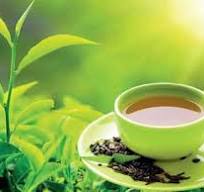
Q: What are the major industries of Sri Lanka and their products?
A: Sri Lanka is equally competent in agriculture, manufacturing and service sectors. Sri Lanka’s key export categories are apparel, Ceylon tea, rubber-based products, coconut and coconut- based products, spices and essential oils, food, feed and beverages and in terms of service sector, ICT/BPM, logistics and tourism.
Apparel sector: A leading destination in global fashion. Leveraging on creativity and experience in an array of fields such as design, R&D and innovation, the Sri Lankan Apparel Sector has shown steady growth over the past three decades. It is a destination where best business practices partner with social responsibilities to create excellence in providing exceptional solutions to global brands.
Sri Lanka is a flagship for green destination and it has the worlds’ First Green factories which is LEED Platinum and Gold Certified as well as leading design innovation with the State-of-the-Art product development facilities. Sri Lanka’s apparel sustainability incorporates its entire production, human resources and supply chain process.
Tea Sector: Ceylon Tea for Connoisseurs
Ceylon tea, known as the finest tea in the world and reputed for its signature taste and aroma makes Sri Lanka as the world's third largest tea exporter to the world. The Lion Logo trade mark for Ceylon Tea captures the legacy and essence of tea grown in Sri Lanka.
The seven agro-climatic regional teas namely Nuwara Eliya, Uva, Uda Pussellawa, Dimbula, Kandy, Sabaragamuwa & Ruhuna has given Ceylon Tea a unique advantage to produce teas of different flavor, aroma, strength and colour unmatched by any other origin in the world.
Rubber Sector: A supplier of top-quality rubber products
Sri Lanka prides itself in manufacturing a number of value-added rubber products by processing raw rubber. Sri Lanka's industrial solid tyres are not only recognized as the best product in the world, but also industry prides itself as the global market leader. The island is the world’s leading supplier of solid rubber tires and the fifth largest exporter of surgical gloves in the globe.
Sri Lanka enjoys a competitive edge in its ability to manufacture grades of rubber, which are not produced by other countries. The unique properties of rubber produced by Sri Lanka (for instance, Sri Lanka is the only producer in the world of Latex Crepe and Sole Crepe grades, which is the purest form of natural rubber) further strengthens the country’s proposition.
ICT Sector: An emerging ICT/BPM hub
Sri Lanka, the Island of Ingenuity (IOI) brand has rapidly gained fame for Information and Communications Technology (ICT) and Business Process Management (BPM). ICT/BPM sector is progressively contributing to the Global Value Chain while serving many Fortune 500 companies in the world. The skills and expertise of the Sri Lankan ICT industry have been hailed internationally.
Electrical and Electronic Sector: Aspiring to be a regional leader in Electrical and Electronic products
With a reputation as a ‘Design to Delivery Destination’ in the Electronic and Electrical sector, Sri Lanka is a center of excellence for electronics design and development, whilst the industry with vigor has embraced all emerging technologies including IoT, Robotics, Bio-medical, Analytics, and advanced Research and Development. Sri Lanka is progressively stepping into the global value-added supply chain with a range of cutting-edge products and services, keeping pace and aligned with emerging global trends of ‘digitization’, ‘automation’, ‘miniaturization’, and ‘development of sustainable green energy’.
Seafood Sector: Endowed with delicious seafood
As a tiny island surrounded by the Indian Ocean, Sri Lanka offers fresh seafood, which includes fresh tuna, shrimp and prawn, crab and lobster. Sri Lanka has emerged as a quality tuna exporter -predominantly yellow fin and big eye species to international markets. These include sashimi quality tuna, tuna loins, fresh tuna steaks, tuna topping and tuna saku blocks, to name a few.
Processed Food Sector: Satisfying a diverse range of tastes across the globe
Sri Lankan processed food and beverage sector covers a wide range of products including coconut, vegetables, and fruit-based products, concentrates and juices, semi-cooked food, confectionery, and bakery products, ready-to-serve food, beverages, animal feed, and preparations of cereals and flour.
Sri Lankan processed food manufacturers are combining innovative food processing methods with highly nutritious traditional local ingredients to prepare food and beverage products that are high in taste and goodness.
Spice Sector: World Famous Spices led by Ceylon Cinnamon
Sri Lankan Spices comprise cinnamon, pepper, cloves, cardamoms, nutmeg, mace and vanilla. Sri Lanka, the only supplier of true cinnamon to the world, had been a global destination for the finest quality spices since time immemorial. Ceylon Cinnamon has introduced to the international market as a branded product namely “Pure Ceylon Cinnamon” which reflects a combination of several intrinsic characteristics and differentiate the Cinnamon from Cassia which is commonly available in the international market. Sri Lanka also supply a range of essential oils and oleoresins derived from the spices grown in Sri Lanka. These varieties of condiments are used to season, flavor and aromatize various forms of cuisines across the world.
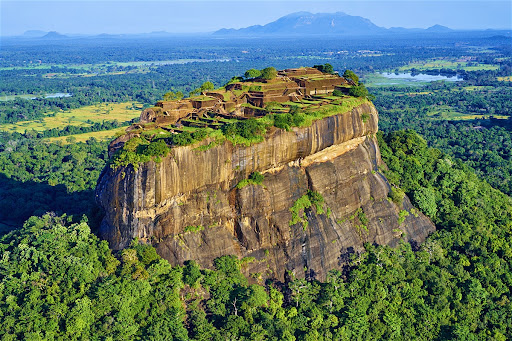
Tourism Sector:
Sri Lanka, year around and compact island is the home for a diverse range of tourist destinations, with its rich cultural heritage, lush natural beauty, diverse wildlife and hospitality.
Sri Lanka is famous for whale and dolphin watching, range of water sports and golf, wellness tourism where the ayurvedic and indigenous healing methods, meditation and yoga. Sri Lanka also is one of the best destinations for Buddhist pilgrims, given the historical and religious values of famous Buddhist pilgrimage sites in the country. The country is also renowned among tourists due to its diverse nature, colorful festivals, delicious cuisines, handcrafts, metalwork, masks and etc.
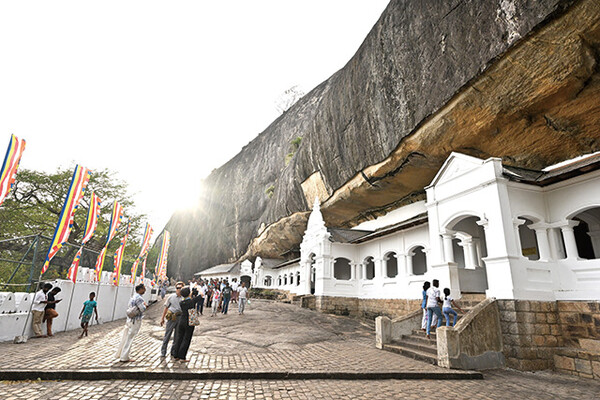
In addition, Sri Lankan tourism is now moving towards MICE tourism, shopping, cuisine and adventure tourism and many more.

